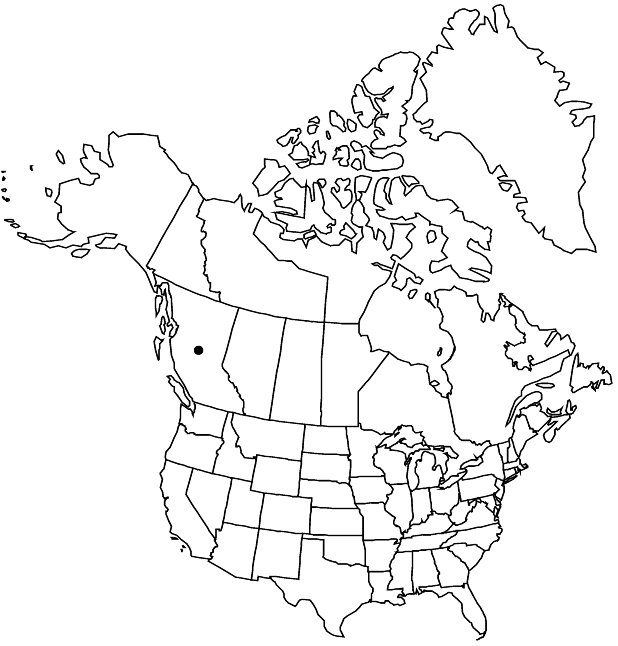Saxifraga taylorii
Brittonia 11: 248, figs. 6, 10–13. 1959 (as taylori) ,.
Plants loosely mat-forming, stoloniferous, rhizomatous. Leaves cauline (crowded proximally); petiole absent; blade broadly obovate, prominently 3-lobed apically (distal unlobed, reduced), (lobes lanceolate to oblong, mucronate), 4.5–12 mm, ± leathery, margins entire, (cartilaginous), stiffly ciliate, apex acute, not or slightly mucronate, surfaces glabrous. Inflorescences 2–4-flowered cymes, sometimes solitary flowers, 3.5–13 cm, glabrous except bracts purple-tipped stipitate-glandular; bracts sessile. Flowers: sepals erect to ascending, (purplish), ovate to oblong, margins eciliate, surfaces glabrous; petals white to cream, not spotted, elliptic to obovate, 3.5–7 mm, much longer than sepals; ovary superior. 2n = 26, 52.
Phenology: Flowering summer.
Habitat: Moist outcrops, rocky ledges, talus slopes
Elevation: 100-1000 m
Discussion
Saxifraga taylorii is known only from the Queen Charlotte Islands and northwestern Vancouver Island.
Selected References
None.
